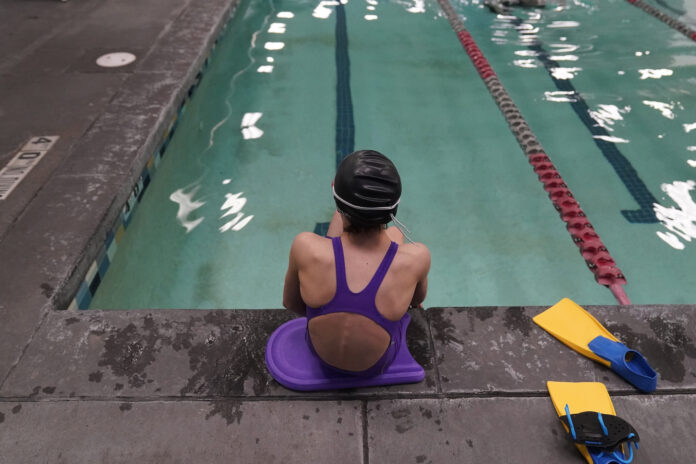World swimming’s governing body has adopted new rules for transgender athletes, only permitting swimmers who transitioned before age 12 to compete in women’s events.
FINA members voted 71.5% in favor of the new “gender inclusion policy” at the organization’s extraordinary general congress on Sunday. It will apply to all its events from Monday.
The 24-page policy also includes proposals for a new “open competition” category. FINA said it was setting up a “a new working group that will spend the next six months looking at the most effective ways to set up this new category.”
Read more:
Sport Canada to stop survey after complaints of discrimination against transgender athletes
The vote came after members heard presentations from of three specialist groups _ an athlete group, a science and medicine group and a legal and human rights group _ that had been working together to form the policy following recommendations given by the International Olympic Committee last November.
The IOC urged shifting the focus from individual testosterone levels and calling for evidence to prove when a performance advantage existed.
Trending Stories
Rampant inflation means Bank of Canada must raise rates above 3%: economist
First phase of Canada’s Greener Home Loan Program launched
U.S. to issue gender-neutral ‘X’ passports starting April 11 – Mar 31, 2022
In March, Lia Thomas made history in the United States as the first transgender woman to win an NCAA swimming championship. She won the 500-yard freestyle.
Other sports have also been examining their rules.
On Thursday, cycling’s governing body updated its eligibility rules for transgender athletes with stricter limits that will force riders to wait longer before they can compete.
Read more:
Canada’s Quinn to become the first non-binary, transgender athlete to win an Olympic medal
The International Cycling Union (UCI) increased the transition period on low testosterone to two years, and lowered the maximum accepted level of testosterone.
The previous transition period was 12 months but the UCI said recent scientific studies show that “the awaited adaptations in muscle mass and muscle strength/power” among athletes who have made a transition from male to female takes at least two years.
© 2022 The Canadian Press



